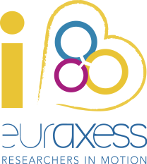Horizon 2020 is the largest research and innovation funding programme in the world, and hence it is likely to have a funding mechanism that you can apply to.
Most of the funding in Horizon 2020 is competitive, with typical success rates of between 10–20%. You can learn more about how to get Horizon 2020 funding by visiting the official Horizon 2020 How to get Horizon 2020 funding? page.
In general, the different funding mechanisms can be separated into two broad categories: individual grants, and; collaborative grants.
Individual grants
There are almost limitless possibilities for individual researchers to get funded under Horizon 2020. The two primary areas of funding are via the Marie Skłodowska-Curie (MSCA) individual fellowships and the European Research Council (ERC) grants.
Marie Skłodowska-Curie Individual Fellowships (MSCA-IF)
These fellowships are open to researchers of all career stages and in all fields of research (including social-sciences and humanities). Applicants may be of any nationality.
The purpose of of these fellowships is to promote researcher training and mobility between countries. Each fellowship will usually be for 2–3 years duration.
In addition to a good scientific proposal, the applicant should also demonstrate the impact that their work will have (including training and dissemination activities) as well as a good management implementation for the project.
Funding will cover your salary, travel and hosting costs.
Further information: ec.europa.eu/programmes/horizon2020/en/h2020-section/marie-sklodowska-curie-actions
Open calls: ec.europa.eu/research/participants/portal/desktop/en/opportunities/h2020/#c,calls=SpecificProgrammeLevel2Names/t/EU.1.3./1/1/1&+callDeadline/desc
European Research Council (ERC) grants

The ERC grants are for the best researchers on the planet to go to Europe to undertake their work for up to five years. Anyone can apply for an ERC grant.
These grants are amongst the most competitive in the world, and are open to researchers of any nationality and any residency.
Generous funding of up to €3.5million is available to cover the salary of yourself and your research team, your research expenses, travel and institutional costs.
There are three types of ERC grants available, separated by career stage:
- Starting Grants: 2–7 years after PhD
- Consolidator Grants: 7–12 after PhD
- Advanced Grants: open competition
Further information: erc.europa.eu
Open calls: erc.europa.eu/call-proposals
Other individual opportunities

Much of the project funding in Horizon 2020 has funding that allows for student and staff stipends and salaries. For example, a large collaborative project may have funding for several years which includes the resources for numerous PhD students and postdocs.
Many of these positions will be advertised via standard means e.g. online advertising, social media, etc. Also, it may be useful to contact groups who have recently been awarded Horizon 2020 funding to discuss their plans for recruitment. The CORDIS database lists information about all successful projects: cordis.europa.eu/projects.
Many of these positions are also advertised on the EURAXESS website: ec.europa.eu/euraxess/index.cfm/jobs
Collaborative grants
The bulk of funding in Horizon 2020 is in the form of project grants via competitive calls.
Most of these calls are open for global participation, though they require that a minimum number of European participants are involved in a given proposal. However, unlike the individual funding opportunities outlined about, the availability of funding throughout most of Horizon 2020 is limited to organisations from a select group of countries. Eligibility for funding is summarised in the table below:
| Country type | Country description | Eligibility for funding |
|---|---|---|
| Member States | Member countries of the European Union. europa.eu/about-eu/countries | Full eligibility |
| Overseas Countries and Territories (OCT) | Non-European countries that are linked to a EU Member State (e.g. French Polynesia, New Caledonia, etc.). | Full eligibility |
| Associated Countries | Other European countries that have an agreement with the EU about access to Horizon 2020. This includes Candidate countries (e.g. Serbia, Turkey, etc.), certain neighbourhood countries (e.g. Albania, Moldova, etc.), and several countries that contribute a significant part of their national research budgets towards Horizon 2020 (e.g. Israel, Norway) . ec.europa.eu/research/participants/data/ref/h2020/grants_manual/hi/3cpart/h2020-hi-list-ac_en.pdf | Full eligibility |
| Third Countries (automatically eligible) | Other countries, as specified by the European Commission, that includes most lower-income and developing nations (e.g. including all of the Pacific Island Countries and Territories (PICTs) such as Fiji, Samoa, etc. and other countries in the Pacific such as Papua New Guinea). ec.europa.eu/research/participants/data/ref/h2020/grants_manual/hi/3cpart/h2020-hi-3cpart_en.pdf | Full eligibility |
| Third Countries (conditionally eligible) | High income countries not listed in the above link. This includes Australia, Brazil, Canada, China, India, New Zealand and USA, amongst others. These countries are fully able to participate in Horizon 2020, but are not automatically eligible for receiving funding from the EC. However, there are several special circumstances when they can be funded. The most common is when it is demonstrated that their involvement is absolutely essential to the success of the project (e.g. they have unique capabilities). | Conditional eligibility |
A summary of research areas can be found at: ec.europa.eu/programmes/horizon2020/en/find-your-area
Further information: ec.europa.eu/programmes/horizon2020/en/h2020-sections
Open calls: ec.europa.eu/research/participants/portal/desktop/en/opportunities/h2020



